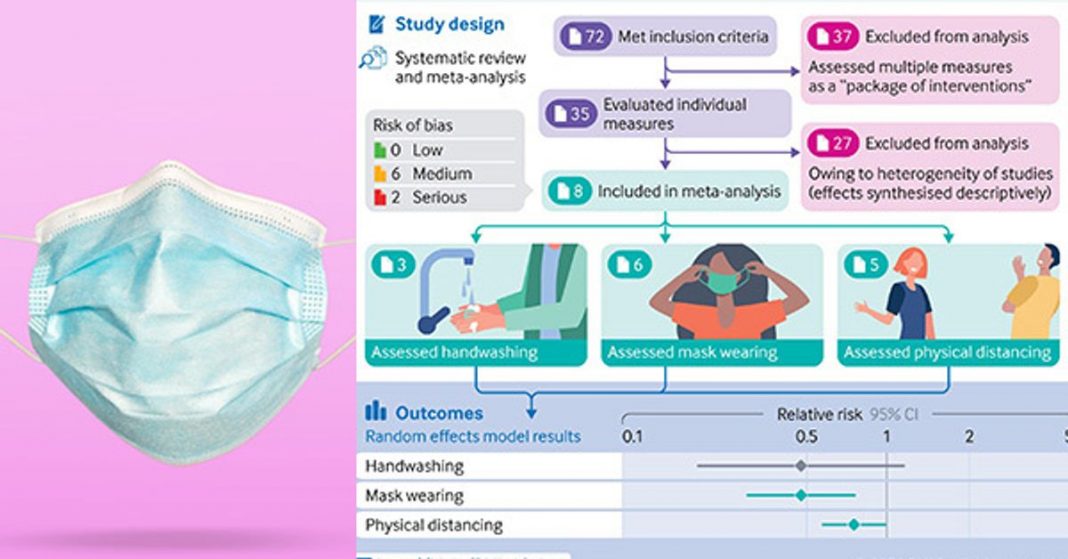There are many reasons not to completely give up the good habits of wearing a face mask and washing your hands frequently. In addition to being good general hygiene practices, in fact, according to the results of its first systematic study BMJ On the effectiveness of both single and multiple public health measures in reducing infection, transmission and deaths from covid-19, in fact, masks will have a 53% effect in protecting health against Covid. The same ratio is guaranteed by proper hand hygiene.
It was an unsurprising result, given the use of these strategies especially at the beginning of the pandemic, when vaccines did not help the world’s population to significantly mitigate the impact that Covid-19 had on our lives in terms of health and restrictive measures. But vaccines are not enough. Globally, vaccination programs have proven to be safe and effective. However, most vaccines do not confer 100% protection and it is not known how the vaccines will prevent the transmission of SARS in the future, given the emerging variables.
The vaccination threshold also varies by country, population response, vaccine types, priority vaccination groups, and viral mutations, among other factors. Until herd immunity against MERS-CoV is achieved, regardless of the already demonstrated high vaccination rates, public health prevention strategies are likely to remain first-choice measures in disease prevention, particularly in locations with low vaccination prevalence. Measures such as lockdown (local and national), physical distancing, mandatory use of face masks and hand hygiene have been implemented as primary preventive strategies to curb the Covid-19 pandemic.
Significant benefits in reducing deaths have been observed in countries with complete lockdown, such as Australia, New Zealand, Singapore and China. However, blanket lockdowns need not consider sustainable and more personalized interventions: those that help keep social lives and economies running while protecting high-risk individuals.
To this end, lower impact strategies become key. Thus, this is the first study to analyze in detail the results of more than 30 studies around the world, which show a statistically significant 53% reduction in the incidence of Covid with mask use and a 25% reduction with physical distancing. Hand washing also indicated a significant 53% reduction in the incidence of Covid, although this is not statistically significant, for the few handwashing studies included in the research.
A detailed analysis of other measures, including quarantine, isolation, lockdown, and closing borders, schools and workplaces, was not possible due to differences in study design, outcome measures and quality, the researchers said.
Mask use was approved by many countries at the start of the pandemic, but about two years later many countries have abandoned some or all of their original requirements. The Dutch government, for example, decided this month to reintroduce the mandatory use of face masks in an effort to slow the recent rise in infections. Romania, the Czech Republic, Slovakia and Poland also recently tightened the rules for the use of masks. But Hungary, which has seen a sharp rise in cases this month, has resisted making masks mandatory indoors. In England, the obligation to wear a mask expired in July, with the exception of health facilities and nursing homes, unless an exemption is granted. In Italy, the mandatory use of masks is still in force at home and on transport. However, there are many people who have returned to cover their faces even in the outdoors or in private mixing situations, especially with the onset of winter and the emergence of all the epidemic curves. Thanks to this study, we know it’s a practice everyone should use. Because the vaccine saves lives and the mask also saves.

“Reader. Travel maven. Student. Passionate tv junkie. Internet ninja. Twitter advocate. Web nerd. Bacon buff.”




